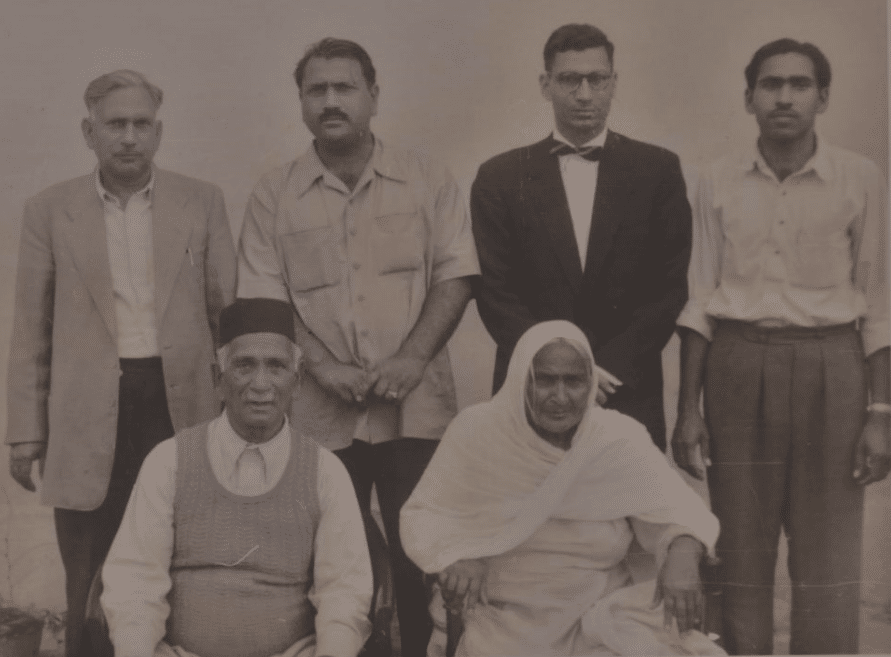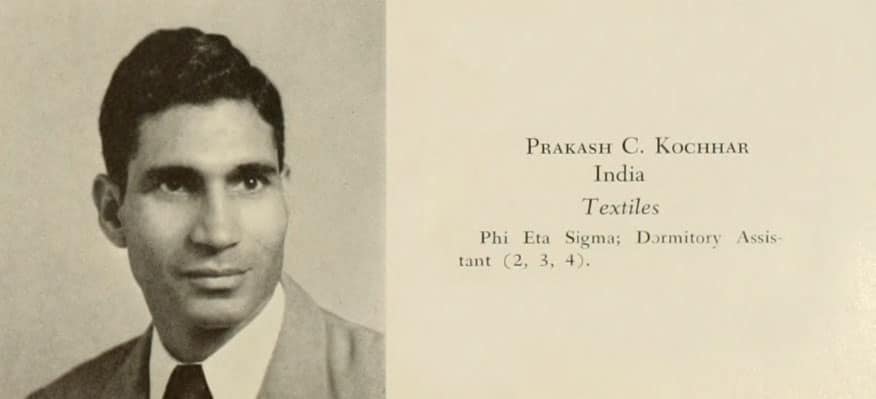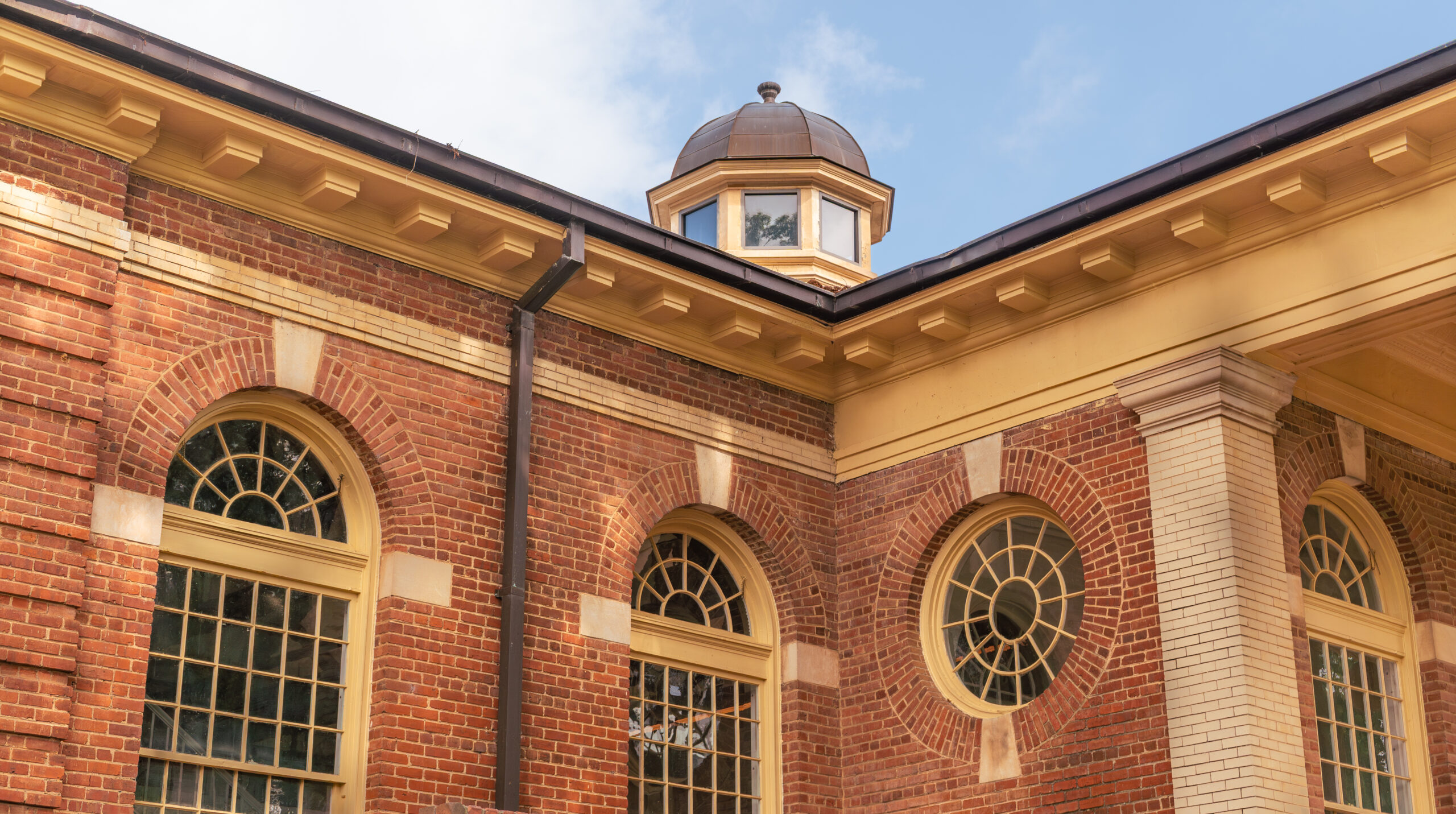The Prakash Chand Kochhar Memorial Textile Scholarship Inspires Future Leaders to Follow in His Footsteps
Some journeys begin with a single step. For Prakash Chand Kochhar ’50, ’52, it began with a ship ticket and an unshakable belief in the power of education to change lives.
Today, his legacy not only includes inspiring more than 50 family members in India to move to the United States, but also extends to a named scholarship that has benefited 29 students at the Wilson College of Textiles.
“My father felt very strongly about the power of education,” says Kochhar’s daughter, Kanta Kochhar-Lindgren. “That is what would make a difference in other people’s lives, and he also very much loved textiles.”
Born in Punjab, India, Kochhar was fascinated by textiles from an early age. As a young adult, his passion led him to pursue roles focused on cotton spinning, weaving and finishing. From there, his dedication to mastering his craft inspired him to complete a graduate-level course in carding and spinning to deepen his expertise. But he didn’t want to stop there.
“He had been working in the textile field when he was in India, and he simply wanted to build on that framework,” his daughter explains.
His next step was clear: a journey to America would allow him to realize his ambitions, but it would require sacrifice and the support of his local community.

Everyone pitched in, gathering what funds they could.
Some money was borrowed. Others contributed what they earned selling cotton and other farm goods. That pooled $334 was just enough to purchase a ticket on a decommissioned U.S. Army ship. So, with his ticket in hand, he set off on a new beginning.
Kochhar never could have imagined how this bold step would lead to an enduring family legacy that continues to uplift generations of textiles students at NC State’s Wilson College of Textiles. Always focused on ways to build better futures, he would go on to encourage his own children, extended family members and countless colleagues toward success.
Finding community, love and career success thanks to NC State
When Kochhar arrived in Raleigh in 1946 to attend the then School of Textiles, he was said to be only the second Indian student ever to enroll at the university.
With just $600 in his pocket, he was welcomed into the Wolfpack community with open arms, despite the challenges of being one of the few international students at the time.
“My father was one of those rare people who evinced a special kind of spiritual warmth, a deep abiding faith in people and a firm belief that the world would move toward unity and peace,” Kochhar-Lindgren shares.

As a textiles student, Kochhar kept a full schedule. In addition to his coursework, he held a range of student employment roles — working as a laboratory technician, an instructor in the yarn manufacturing department and the manager of the process research labs. He even picked up shifts as a busboy at a local hamburger joint to add extra money to his pockets.
“He had a tremendous opportunity at NC State to further his education,” his daughter says. “He worked in the textile laboratory in different capacities and taught, so this also helped give him a chance to really build up his skill set and his problem-solving approaches.”
While on campus, Kochhar also met the love of his life, Christine Hayes Kochhar, who was attending a nearby women’s college. During a class tour of NC State’s textile labs, Kochhar gave a presentation and led the group through the space. After a formal introduction by mutual friends, the two quickly became inseparable. They tied the knot in 1951, and their multilingual, cross-cultural family helped bridge Indian and American traditions.
“He had a tremendous opportunity at NC State to further his education. He worked in the textile laboratory in different capacities and taught, so this also helped give him a chance to really build up his skill set and his problem-solving approaches.”
In the 1950s, Kochhar also felt drawn to creating an international neighborhood for his fellow immigrant students. This sense of a supportive community was central to his beliefs and made a meaningful difference for many on campus, especially those who had come from abroad to study textiles and in other fields.
“It’s all about appreciation and introducing others to what he had experienced,” says his son, Anil Kochhar. “It’s also the genesis of how so many members of our family came from India to the United States. NC State opened that door.”
After earning his bachelor’s degree in textile manufacturing in 1950 and his master’s degree in the same program in 1952, Kochhar accepted a role as a sales service coordinator at Industrial Rayon in New York City. His textile engineering career later took him across several states — including Ohio, Virginia, North Carolina and Georgia — as part of the Technical Service Group of Hercules.
His time in the textiles industry also helped him envision the legacy he hoped to leave behind — one rooted in education, opportunity and community.
A planned gift memorializes a father’s legacy
Despite Kochhar’s unexpected passing in 1985, he wanted, as a part of his final wishes, to provide for those invested in a meaningful future in textiles. At the same time, he also wanted to create the opportunity for others that NC State had given to him.
Initiated by his wife and funded through his estate with additional support from his employer, the Technical Service Group of Hercules, the Prakash Chand Kochhar Memorial Textile Scholarship was created in 1986 to support the next generation of textile leaders.
“I don’t think of this scholarship as an award for my past accomplishments, but instead as a contribution toward my future,” says Avery Leigh Winslow, a proud recipient of Kochhar’s scholarship. ”I am tremendously thankful that I was chosen, and I will continuously work to ensure you receive an excellent return on your investment.”
Winslow adds, “Your support of my academics and future career in the textiles industry is deeply appreciated.”
Beyond the Prakash Chand Kochhar Memorial Textile Scholarship, Kochhar’s legacy lives on through his family’s unwavering support of education.
“It’s all about appreciation and introducing others to what he had experienced. It’s also the genesis of how over 50 members of our family came from India to the United States. NC State opened that door.”
He and his wife have proudly helped relatives in India immigrate to the United States to pursue academic and career opportunities. As of 2022, more than 50 of Kochhar’s family members now call the U.S. home, which is a testament to how one man’s determination can change the course of an entire family tree. His story serves as a powerful reminder that education is not just about gaining knowledge; it lays the groundwork for future generations to flourish.
When reflecting on the dozens of Wilson College of Textiles students who have received the Prakash Chand Kochhar Scholarship, it’s clear that his circle of impact extends well beyond his family. It continues to shape the lives of students he never had the chance to meet.
“What I remember most about my father is his spirit and the look in his eyes that told me anything is possible,” his son says. “Everyone he met felt better for having known him. I feel his strength as I write this. Long live the legacy of Prakash Chand Kochhar.”
This post was originally published in Wilson College of Textiles News.
- Categories:


